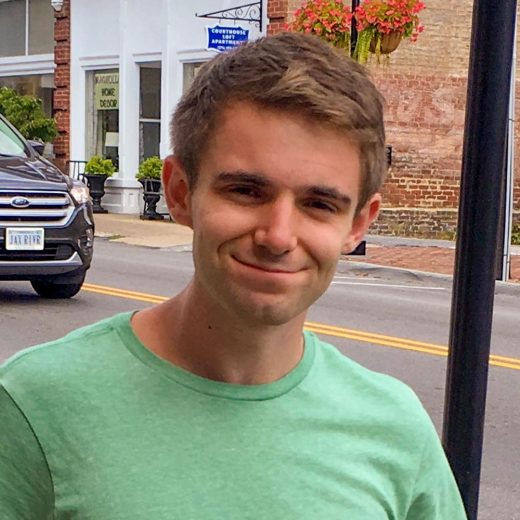
Why are humans so curious?
Curiosity is a hallmark of the human experience. But why?

The human craving to know and understand is the driving force behind our development as individuals and even our success as a species. But curiosity can also be dangerous, leading to stumbles or even downfalls, so why does this impulse so often compel us throughout life?
Put another way, why are humans so curious? And given curiosity's complexity, do scientists even have a definition for this innate drive?
Curiosity is so ingrained, it helps us learn as babies and survive as adults. As for the definition, there isn't one set in stone. Researchers across many disciplines are interested in curiosity, so it's no surprise there isn't a widely accepted definition of the term. William James, one of the first modern psychologists, called it "the impulse towards better cognition." Ivan Pavlov wrote that dogs (of course it was dogs) are curious about novel stimuli through the "what-is-it?" reflex that causes them to focus spontaneously on something new that comes into their environment.
Related: Why haven't all primates evolved into humans?
While pinning down a definition has proven tricky, "the general consensus is it's some means of information gathering," Katherine Twomey, a lecturer in language and communicative development at the University of Manchester in the United Kingdom, told Live Science.
Psychologists also agree that curiosity isn't about satisfying an immediate need, like hunger or thirst; rather, it's intrinsically motivated.
Making our way in the world
Curiosity encompasses such a large set of behaviors, there probably isn’t any single "curiosity gene" that makes humans wonder about the world and explore their environment. That said, curiosity does have a genetic component. Genes and the environment interact in many complex ways to shape individuals and guide their behavior, including their curiosity.
Researchers did identify changes to a specific gene type that is more common in individual songbirds that are especially keen on exploring their environment, according to a 2007 study published in the journal Proceedings of the Royal Society B, Biological Science. In humans, mutations in this gene, known as DRD4, have been associated with a person’s propensity to seek novelty.
Regardless of their genetic makeup, infants have to learn an incredible amount of information in a short window of time, and curiosity is one of the tools humans have found to accomplish that gargantuan task.
"If infants weren't curious, they'd never learn anything and development wouldn't happen, Twomey said.
Hundreds of studies show that infants prefer novelty. In a classic 1964 study, a psychologist showed that infants between 2 months and 6 months old grew less and less interested in a complex visual pattern the more they looked at it. A 1983 study in the journal Developmental Psychology of slightly older children (ages 8 months and 12 months old) indicated that once babies got used to familiar toys, they preferred new ones, a scenario that caregivers likely know all too well.
This preference for novelty has a name: perceptual curiosity. It's what motivates non-human animals, human infants and probably human adults to explore and seek out new things before growing less interested in them after continued exposure.
As these studies show, infants do this all the time. Babbling is one example.
"The exploration they do is systematic babbling," Twomey said. When most babies are just a few months old, they start making vowel and repetitive, speech-like sounds as they learn how to speak. Babbling demonstrates the utility of perceptual curiosity. It begins as a completely random exploration of what their vocal anatomy can do.
Eventually "they'll hit on something and think 'That sounds like something my mum or dad would do,'" she said. And then they do it again. And again.
But it isn't just infants. Crows are famous for using perceptual curiosity as a means of learning. For instance, the drive to explore their environment probably helps crows learn to fashion the simple tools they use to fish larvae out of hard-to-reach crevices. Moreover, experiments with robots programmed to be curious have shown that exploration is a powerful way to adapt to a new environment.
Making the world work for us
Another kind of curiosity is distinctively human. Psychologists call it epistemic curiosity, and it's about seeking knowledge and eliminating uncertainty. Epistemic curiosity emerges later in life and might require complex language, Twomey said.
For Agustín Fuentes, a professor of anthropology at Princeton University, this form of curiosity has set humans — and probably all members of the genus Homo — apart from other animals and paved the way for us to populate nearly every corner of the world, inventing technologies from hand axes to smart phones.
"Humans, in our distinctive lineage, went beyond simply tweaking nature to imagining and inventing whole new possibilities that emerge from that kind of curiosity," Fuentes told Live Science.
Related: Can you learn anything while you sleep?
But curiosity comes with a cost. Just because humans can imagine something doesn't mean it will work, at least not at first. In some situations, the stakes are low and failure is a healthy part of growth. For instance, many babies are perfectly proficient crawlers, but they decide to try walking because there’s more to see and do when they stand upright, according to Twomey. But this milestone comes at a small cost. A study of 12- to 19-month-olds learning how to walk documented that these children fell down a lot. Seventeen times per hour, to be exact. But walking is faster than crawling, so this "motivates expert crawlers to transition to walking," the researchers wrote in the 2012 study, published in the journal Psychological Science.
Sometimes, however, testing out a new idea can lead to disaster.
"Curiosity probably led to the vast majority of human populations going extinct," Fuentes said.
For instance, the Inuit of the Arctic regions of Greenland, Canada and Alaska, and the Sámi people of Europe’s northern reaches have "created incredible modes to deal with the challenges" of living in northern climates, but "what we forget about are the probably tens of thousands of populations that tried and failed to make it" in those challenging landscapes, he said.
Ultimately, curiosity is about survival. Not all curious humans lived to pass their penchant for exploration on to their descendants, but those who did helped create a species that can't help but think, "Huh, I wonder what would happen if ..."
Originally published on Live Science.
Live Science newsletter
Stay up to date on the latest science news by signing up for our Essentials newsletter.

Grant Currin is a freelance science journalist based in Brooklyn, New York, who writes about Life's Little Mysteries and other topics for Live Science. Grant also writes about science and media for a number of publications, including Wired, Scientific American, National Geographic, the HuffPost and Hakai Magazine, and he is also a contributor to the Discovery podcast Curiosity Daily. Grant received a bachelor's degree in Political Economy from the University of Tennessee.
Most Popular

By Harry Baker

By Harry Baker